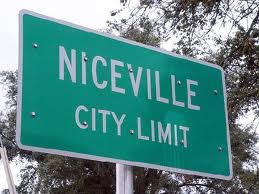For some time now, younger Catholic moral theologians have been discussing how the issues of concern to them are different from those of the immediate post-Vatican II generation that dominated the theological discourse for many years (this discussion has gone on long enough that many of those younger Catholic moral theologians are beginning to move out of that category…). Debates about absolute moral norms, proportionate reason, and magisterial authority, while important, do not really define these younger theologians.
Bill Portier, in his article “Here Come the Evangelical Catholics” (Communio 31 (2004): 35-66), provides some of the historical context for this shift. He argues that as Catholics emerged from the religious and ethnic subcultures that characterized American Catholicism up until the 1960s, they experienced for the first time the religious voluntarism characteristic of a pluralist society. In other words, for the first time one’s Catholic faith had to be consciously chosen rather than assumed. In response to this sociological change, many young adults Catholics are adopting what he describes as “evangelical Catholicism,” which is characterized by a conscious effort to adopt Catholicism as a communal identity.
The Catholic moral theologian David McCarthy, responding to Portier in an article of his own (“Shifting Settings From Subculture to Pluralism: Catholic Moral Theology in an Evangelical Key,” Communio 31 (2004): 85-110), provides an interpretation of how this sociological shift has impacted moral theology. Earlier moral theologians, such as Charles Curran, Richard McCormick, and Germain Grisez, had been deeply formed in their faith by the Catholic subculture, and in many cases through priestly formation. According to McCarthy, these theologians experienced the subculture as something to be escaped in order for Catholics to be publicly relevant, which is expressed in the strong emphasis on reason and natural law in both the new natural law theory and proportionalism.
Younger Catholic moral theologians, on the other hand, take for granted their place in the public sphere, and instead experience anxiety about the absence of a clear Catholic identity. Not experiencing the public formational experiences of older generations, younger Catholics experience the privatization of faith as a constant temptation. Therefore many younger Catholic moral theologians are less focused on providing explanations for the public relevance of Catholic morality, but rather on establishing the communal bases necessary for the living of that morality.
In 2002, a group of these theologians gathered for the first New Wine, New Wineskins conference at the University of Notre Dame. One of the purposes of this gathering was to provide a type of formation in an ecclesial vocation, related to but distinct from professional life in the university. Part of this ecclesial vocation was a commitment to avoid the acrimonious debates characteristic of earlier generations that had in many ways harmed the church. Instead, without minimizing disagreement, theologians would seek to understand and dialogue with one another in a spirit of charity. I believe that even many younger moral theologians not associated with New Wineskins have adopted this commitment, and this blog is one example of this.
Even as a self-identified “evangelical Catholic” and someone who has taken part in the New Wineskins gatherings, I have often wondered if the newness of these younger generations has been overplayed. The issues that divided older generations have not simply gone away. For example, in the past few weeks the writers on this blog have devoted significant attention to the issue of “intrinsic evils” in relation to voting. The current discussion of this issue only makes sense in light of the earlier generations’ debates, even if today the concept of “intrinsic evil’ is also being used (or misused) as a marker of Catholic identity in the political realm.
Also, although I certainly subscribe to the commitment to charitable dialogue, I wonder if it would also be helpful to reflect on the real fissures among younger Catholic moral theologians. In his article “The New Divide: Romantic versus Classical Orthodoxy” (Modern Theology 26 (2010): 26-38), John Milbank provides a typology of contemporary Catholic (and Anglo-Catholic) theology that in many ways corresponds with my own thoughts on moral theology.
As the title of the article indicates, Milbank’s primary distinction is between those he dubs the “romantic orthodox” and the “classical orthodox.” The classical orthodox are particularly devoted to the thought of Thomas Aquinas (Milbank humorously calls them “neo-neo-Thomists”) and give a prominent place to the role of objective reason in theology. So-called “ressourcement Thomism” would be a leading example of this type. Within moral theology, there are many younger moral theologians doing careful work analyzing Aquinas’s thought on human action, the virtues, and so forth that could easily be grouped here. My personal sense is that, in contrast to earlier generations of Thomists, these theologians turn to Thomism precisely as a tradition that provides certainty amidst pluralism, although I doubt they would describe it that way.
Romantic orthodoxy, on the other hand, is characterized by the belief that reason, at least as understood in modern times, is insufficient, and must be embedded in tradition, symbol, feeling, etc. (Milbank’s treatment of these two approaches is much more developed and well worth the read). Adherents of this type within moral theology tend to have a focus on ecclesial community and practices as a starting point for ethical reflection. Theologians influenced by Milbank’s Radical Orthodoxy or by the work of Protestant theologian Stanley Hauerwas would fit into this type, as would those connected with the journal Communio, edited by David L. Schindler.
Although not mentioned in his title, Milbank also mentions a third group, the “neo-Rahnerians,” which he sees as a continuation of earlier liberal theology. A characteristic feature of this approach is “cultural mediation,” the expression of theological concepts in non-theological terms, or the recognition of apparently non-theological phenomena as fundamentally theological realities. In moral theology the term “neo-Rahnerian” is hardly adequate, since I assume most younger moral theologians are only indirectly influenced by Rahner, yet the type itself seems real enough. Milbank assumes that this type is on the decline, but in the work of younger moral theologians this type remains robust. Moral theologians who fit this type tend to be less focused on theoretical questions and more on concrete issues of justice. They are interested in the public relevance of the distinctively Catholic ethic. I would also include here younger theologians influenced by liberation theologies of various kinds, tackling moral theology from feminist, Hispanic, African-American, and Asian perspectives, for example.
After looking at these three types and their differences, it is also important to look at one striking thing they all have in common: they are all quite uncomfortable with mainstream American society, although for different reasons. Although highly engaged with public life, the neo-Rahnerians are engaged precisely because they see the poor and marginalized being oppressed or neglected by our dominant public institutions. The romantic orthodox tend to see Americans as formed by communities ambivalent, if not hostile, to the Christian way of life. And the classical orthodox, precisely because of their grounding of morality in objective reason, see American culture’s departure from traditional Christian norms as demonically irrational. I think this shared dis-ease is characteristic of the sociological reality described by Portier and McCarthy, as Catholics navigate their distinctiveness from the surrounding culture. How we understand this distinctiveness and what it means for our relationship with the broader society is perhaps the primary question of our time.
Obviously these typologies cannot serve as a precise classification system, and divisions exist within each type. For example, moral theologians who could plausibly be placed among the classical orthodox have for the past few years debated what Aquinas means by the “object” of human action, and the romantic orthodox differ in their use of postmodern theory (One is more likely to find citations of Žižek and Agamben in Modern Theology than in Communio!). And someone might object that theology, and even moral theology, today is too eclectic and fragmented for typologies to be of any use. Moral theology certainly is eclectic and fragmented, but I believe that typologies can help us discern where the primary fissures between us lie. The use of typologies also does not necessarily imply an “us vs. them” mentality. In fact, the identification of where our deepest divisions are can help promote deeper understanding of one another.
So I write this post as an invitation to charitable dialogue. Is a typology of contemporary moral theology useful? Are these types adopted from Milbank adequate, or are there better ways to think about things? What are the primary fissures that divide us, and what should we do about it?





Matt– Helpful summary of these typologies. One issue that might be added here – for older generations and for ours – is influence of different sites of training in intellectual formation. Evidently there is wisdom in the three streams/sites that are all important to the tradition as a whole.
I love typologies, but your piece also made me want to ask a different (and prior?) question: “Catholic Moral Theology Today: What’s the Point??” You could adopt Tracy’s threefold scheme of academy-church-public, but that’s not really an answer to what’s the point. If you asked “what’s the point of moral theology?” in 1950, there was a clear (if insufficient) answer: making good confessions, and thus defining sins. Jim Keenan’s history argues that there is a move to “liberating consciences” – broadly understood, communicating a particular moral vision of the world as a guide for discernment. This picks up on the move to reintegrate “spirituality” with moral theology, and also to reintegrate “social ethics” with an act-centered moral theology. My sense is everyone will affirm at this general level these moves – but the execution of the moves is very different. For example, I’ve been reading Jim Martin’s Jesuit Guide to Almost Everything, and thinking to myself, this would be a GREAT TEXT for my undergrads in moral theology – except of course that it is not moral theology. It’s largely a spiritual formation text, a “wisdom” text if you like, gthat obviously guides people to the good, but the “mode” (?) or “method” (?) is way different from moral theology, whether in a Grisezian mode or a Thomistic virtue mode or even a “Romantic orthodoxy”/Schindler/Ratzinger mode. I guess this is all fine – one SINGLE unified field would be a problem, as McCarthy rightly argues in his inaugural Journal of Moral Theology issue. But does there come a point when we start saying: the task is no longer to further integrate these pieces (i.e., spirituality, social ethics, moral theology), but to properly distinguish them (without of course SEPARATING them)?
And, in a moment of realism, I can’t help but note that at the Catholic Conversation Project in August, it struck me that amidst these fine-grained distinctions, bishops and theologians of many stripes seemed to sense two things: that there was widespread lack of any formation (or mis-formation) in the Church at large, and that the broader culture is helping us less and less.
Thanks for this thought, Matt. I too have wondered if there’s really that much “new” about younger Catholic moral theologian generations, myself included. I think that the schools in which we’ve been educated still form and shape moral thought – and I thought this reflected no where better than at the Trento conference.
I tend to be the type that doesn’t really like typologies, however ;-), Milbank’s included. I don’t know how helpful it is to name groups or types since I don’t think that contemporary theology can really be made sense of in the way that Milbank suggests.
And, contrary to what you suggest in the last paragraph, I think that typologies often do reinforce what people already encounter as “us/them” mentalities. That is, I hear much more, “Oh they couldn’t possibly be orthodox” even if someone is identifying themselves as orthodox. Milbank is probably right to name different emphases people have that have been called orthodox and that could help us see where divisions lie – I’m just not all that optimistic that people would rather interpret those as places of deeper conversation over against ever more entrenching what they see as “orthodox”.
David and Jana, sorry I am just now responding to the replies to my own post! I agree that where we goes to school is part of the story I am telling, but I didn’t include it, for one because I was already going long, and second because it is complicated. Someone might have gone to a certain school but not fit into the “right” type, or maybe professors at one school seem to fit different types. And then some schools don’t clearly fit into one of the types.
Jana, I didn’t mean to suggest that typologies never create “us vs. them” mentalities. If you read Milbank’s article, he is certainly using his own types to advocate for the superiority of the romantic orthodox view. But is that necessarily the case? Is there another case to distinguish the core issues that divide us from less central disagreements?
Thank you Matthew, I couldn’t help but put all my friends in their respective boxes! I guess this answers my question: “can’t Catholics just be Catholics?” And, naturally, raises a thousand more questions: what typology do the writers on catholicmoraltheology.com fall under? Are we seeing a new typology emerge? Can we transcend typologies? Or is their variety what makes the Catholic faithful so vibrant?
I wish to comment on just one point:
“Earlier moral theologians, such as Charles Curran, Richard McCormick, and Germain Grisez, had been deeply formed in their faith by the Catholic subculture, and in many cases through priestly formation. According to McCarthy, these theologians experienced the subculture as something to be escaped in order for Catholics to be publicly relevant, which is expressed in the strong emphasis on reason and natural law in both the new natural law theory and proportionalism.”
I doubt that McCarthy’s observation is true of any of us three, but criticize it only for myself. I was deeply formed in my faith by the Catholic subculture, but never through priestly formation. My main formator was my mother who all her life was a voracious reader, and had a very sharp, critical mind. During my formal education, I regarded all the theology I encountered, except the works of Thomas Aquinas, as a vast, insalubrious swamp, resulting from the philosophical incompetence of the seminary teachers who were for hundreds of years almost the only Catholic theologians and who dodged all serious problems to avoid discouraging the seminarians. So, I was excited by and enthusiastic for Thomas, and when I began doing ethics at Georgetown, I started with his treatment of natural law. I did not put it into a theological framework then because I was a philosopher and was teaching philosophy to many non-Catholics, some very bright ones in Georgetown’s School of Foreign Service. During several summers I participated in workshops on public policy with members of Georgetown’s Department of Government but also with Protestants (e.g., Paul Ramsey) and some nonbelievers. I was not trying to be publicly relevant. Rather, I was being publicly relevant doing ethics, and criticizing the consequentialism then being used by US government leaders to justify indiscriminate killing in Vietnam and the nuclear deterrent.